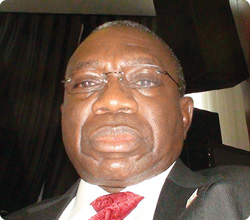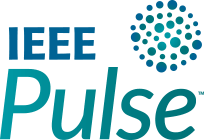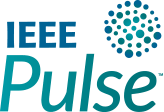As immediate past permanent secretary of the Lagos State Ministry of Health in Nigeria and former chief medical director of one of the country’s top medical centers, Lagos State University Teaching Hospital (LASUTH), Femi Olugbile has had a close view of his country’s health care progress over the years. Despite decades of economic booms and busts and sociopolitical turmoil, Nigeria’s health systems have grown, Olugbile says—but not enough. The average life expectancy is around 52 years. Ongoing problems with extremist groups like Boko Haram have hamstrung vaccination programs, and this year, the country experienced the first Ebola threat in its history.
Though recently retired from his positions in academia and government, Olugbile continues to champion for better care in Nigeria, advising Nigeria’s policymakers, hospital leaders, and other stakeholders through his new consulting firm, SYNTHESIZ CONSULTS. Here, he shares his views on his country’s hospitals and hopes for the future of health in Nigeria.
IEEE Pulse: What are the primary challenges facing Nigeria’s hospitals and health care today?

Femi Olugbile: The problems of health care exist at two extremes. At the most basic level, the primary health care facilities [PHCs], both public and private, need to be equipped and manned to a minimum standard in order to be an effective first link in the health care system and to meet most of the basic needs that exist at the grassroots level. In many parts of the country, the PHCs are inadequate in number and are not properly manned, with some having no doctors, and with most of the care being administered not by trained nurses but by a lower category known as community health officers.
The next tier of care, the general hospitals, are supposed to provide more specialized care to the citizens across a broad range of specialties, preferably on referral from the PHCs. Many of them in some parts of the country are inadequately equipped and suboptimally manned.
Tertiary hospitals such as LASUTH are tasked with the challenge of delivering “world-class” specialized care to people whose needs cannot be met at the lower centers. These are patients such as those who require heart surgery, neurosurgery, kidney transplants, minimal-access surgery, etc. Unfortunately, although there are some high-tech equipment and highly skilled personnel in some of these facilities, they are often unable to perform effectively to have internationally acceptable outcomes. This is primarily because of the failure to date to address the quality issue, with the need for standardized protocols and procedures, and continuous measurement. Inadequate funding, access to finances, and negative staff attitudes toward clients are other reasons for the failure of many of these teaching hospitals to achieve their potential. In addition to that, the equipment itself needs to be tropicalized and made more rugged to withstand Nigerian conditions, such as unstable public power and uncertain quality of water.
IEEE Pulse: Can you explain the term tropicalized in this context?
Olugbile: It is necessary that equipment that will be used here be made specially suitable for the environment. This means they have to be rugged and able to withstand the rigors of the environment. Some people mistake this to mean that we should only have the most basic equipment because this is what our environment can support. This is not correct. Even the manufacturers of automobiles and household equipment, such as refrigerators and air conditioners, recognize the need to do extra work to adapt their latest designs for use in this region, so that the appliances can serve the desired purpose, last for a reasonable period, and be maintained by the staff available. Such thinking must also go into the adaptation of health care equipment, whether they are MRIs or PET scanners or electronic monitors. This is what will make them “intelligent” and relevant. And it is an achievable objective.
Of course, one of the requirements for sustaining the “intelligent” system is that an adequate pool of manpower with the capability to understand and maintain the equipment must be built up locally. This is lacking at present. It is both in the interest of the manufacturer and the user that this resource be created, as it will provide the confidence that will increase the size of the market, in reality creating a win-win situation.
IEEE Pulse: Do you think that Western “intelligent hospital” developments—RFID tagging, advanced monitoring devices, etc.—are something that would be relevant for Nigerian hospitals?
Olugbile: The “intelligent hospital” is not only necessary but an imperative for the advancement of tertiary health care in Nigeria. Of course, it must be customized for the Nigerian environment. Without attaining that standard, the country will continue to witness avoidable death and lose billions of dollars every year to medical tourism.
Electronic medical records are already in use in some of the better private facilities and are being set up in several government hospitals in Lagos. Advanced monitoring devices are necessary for critical care, a capability that is absolutely essential for a city like Lagos with a teeming population, but which is also necessary for all of Nigeria.
IEEE Pulse: Nigeria has recently dealt with its first Ebola patients. How is that crisis being handled, and how prepared are Nigerian hospitals in general to counter something like that?
Olugbile: Nigeria is rising to the challenge. The service design adopted is that all the patients confirmed and placed on treatment so far have been accommodated in a specially modified ward at the Infectious Diseases Hospital (Mainland General Hospital) in Lagos.
A total of five persons—including the Liberian-American man who was the source of the infection—have died, but another five have recovered and been discharged [as of 22 August 2014]. All health facilities across the nation have been placed on alert, not on account of the index case—which appears to have been reasonably contained—but to take care of the possibility of sporadic cases arising from people from the infected countries somehow crossing into Nigeria through its long and porous land border or some other route.
There has been a general sensitization of health care givers to treat all cases of fever with suspicion, especially in people who have traveled to the affected countries recently or who have been in contact with others who have. They are required to apply safe handling and injection practices, look for associated symptoms, and, where there is any suspicion, call public health officials on special help lines. The officials will arrange for the individuals to be properly assessed and quarantined where necessary. All the local deceased so far have been cremated at the Mainland Hospital facility.
Before the recent development, there was no dedicated and fully equipped isolation unit of the type at Emory University, although Lagos State has an Infectious Diseases Hospital that is capable of providing a measure of isolation for clients with contagious diseases such as tuberculosis. It will be necessary now to create these facilities, train and equip staff for them, and keep them on standby for such developments.
IEEE Pulse: Looking back at your experiences, you have been involved in health care in Nigeria for a very long time in a variety of ways—it’s clearly a passion of yours. How and why did this begin?
Olugbile: I started off by going to medical school because I wanted to be a psychiatrist. My role models as a child were Sigmund Freud and our own Adeoye Lambo (who became the deputy director of the World Health Organization). Along the way, I became interested in management and acquired some training (I am a fellow of the Nigerian Institute of Management). Part of my passion for this was because I realized that the management function is a major cause of failure or subperformance in African systems and societies (both health and nonhealth), and it was necessary to provide input to effect corrections. I saw, for instance, that one of the major reasons why hospitals (government and private) were failing in the Nigerian environment was not necessarily because there was an absence of clinical skills, but because the management function was being performed by doctors who were not (and still mostly are not) trained to be managers, and who, by and large, see no need to acquire such training!
I tried to make a difference when I got the chance to be chief medical director of LASUTH, and it was pleasant to see that the hospital received accolades within the Nigerian health community for its landmark achievements in areas such as heart surgery, critical care, and neurosurgery, despite its relatively young age.
When I was elevated to the position of permanent secretary in the Ministry of Health, I was provided with another perspective that enabled me to see how crucial policy was in creating and optimizing systems, and I worked with a team led by Dr. Jide Idris (honorable commissioner for health) to make good policy and innovation work for Lagos State. Lagos is now regularly praised by other states in the federation as a pace setter on policy—it was, for instance, the first state to enunciate a comprehensive mental health policy and to host an international conference to address the multisectoral needs of “The Liveable City.”
IEEE Pulse: Where would you like to see Nigeria’s health care and hospitals go in the future?
Olugbile: The game changer that will move Nigerian health care to its deserved position of international competitiveness is the strengthening of the private health sector, which is in its tentative beginning. Standards of clinical and management practice in private hospitals must be improved, quality assurance needs to be institutionalized, and hospitals must be rated based on their standards. Large single-specialty or multispecialty private hospitals need to come on the scene, manned both by local specialists and returnees from the Nigerian diaspora.
Government should play the role of facilitator and enabler for high-end medical care, instead of seeking to be the one always to provide the service. It can assist the development of these centers by giving land on concessionary terms and also by reducing or removing import duties on medical equipment. A special bank may be set up to assist the health industry, similar to what is currently being done for agriculture and industry. Then, as the growth and strengthening of private medical facilities proceeds, a lot of the functions currently assumed to be the exclusive preserve of government, such as the training of undergraduate and postgraduate medical doctors, will gradually be shifted to the private sector.
IEEE Pulse: Your final thoughts on the future of Nigerian health care?
Olugbile: With the strengthening and standardization of primary health care, backed up with mobile health, and the proliferation of internationally accredited private-sector centers of excellence catering to advanced medical needs, I see Nigeria in the next few years not only improving its health indices, but becoming a regional hub for medical tourism.



